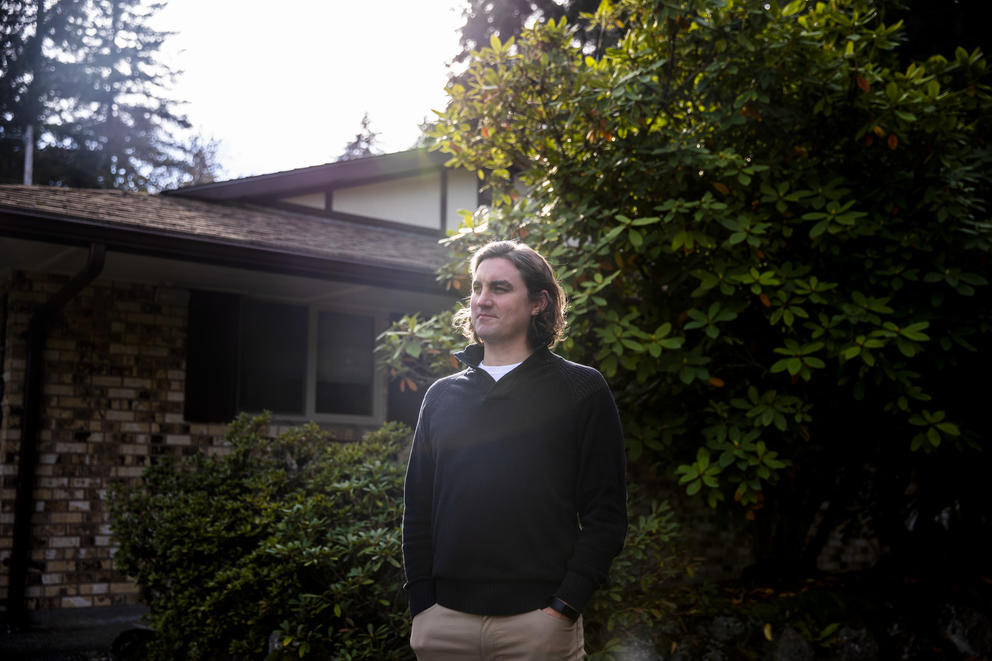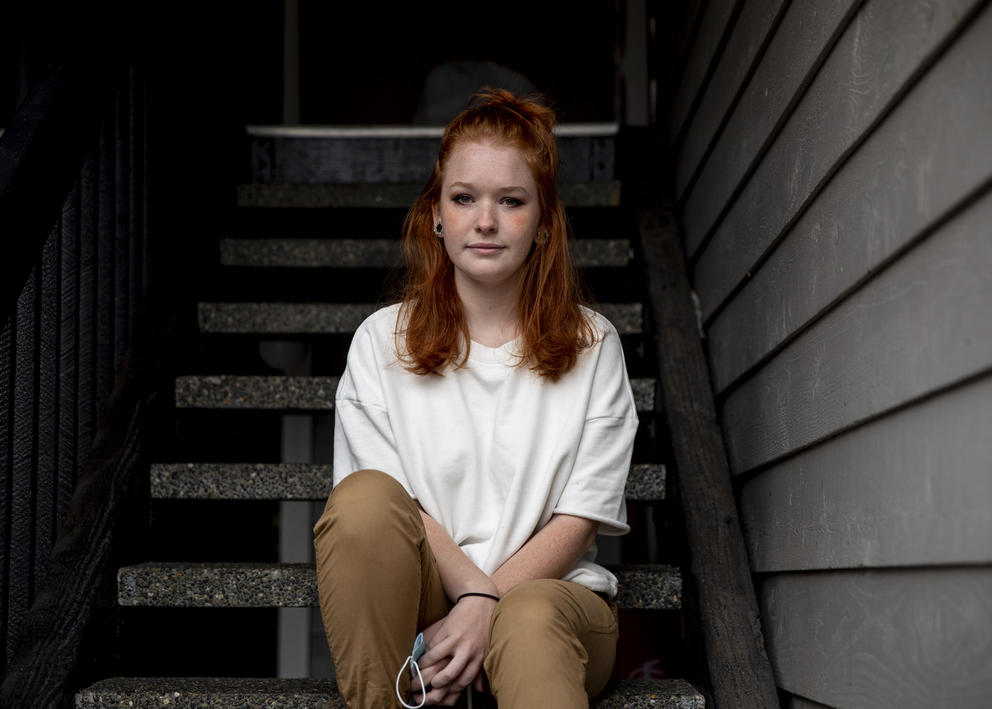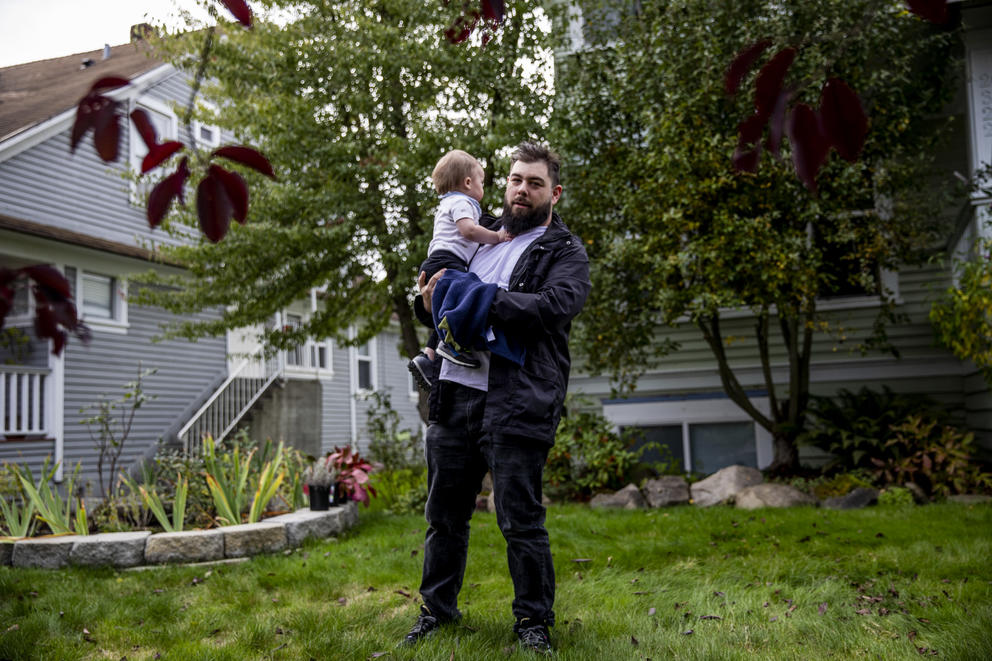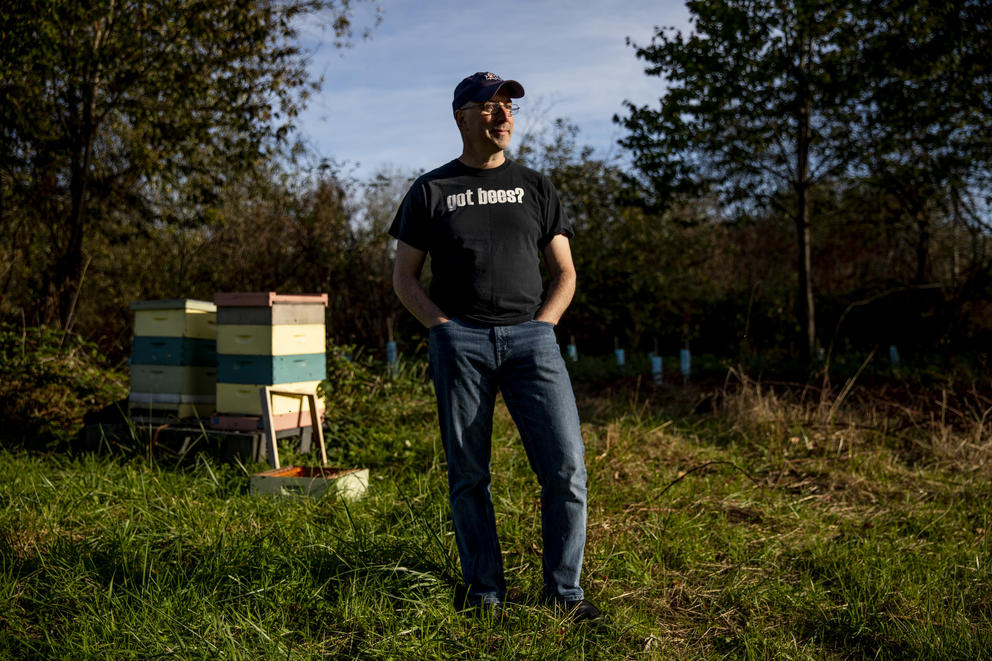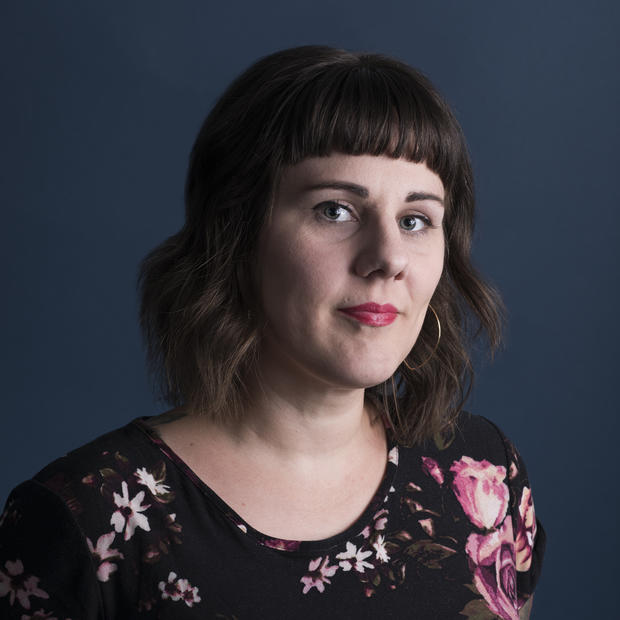The 34-year-old Issaquah resident, who works as the chief operating officer of a bank, is disenchanted with the presidential candidates. While Washington is one of the 32 states where prior filing is required for a write-in candidate to be counted, Johnston is not hopeful that either will win, but he’s doing it to send a message: He thinks both former Vice President Joe Biden and President Donald Trump are “pretty rotten.”
While Washington is expected to see historically high voter turnout, with some estimates reaching toward 90% of eligible voters casting ballots, that still leaves half a million or more like Johnston who are sitting out a highly contentious presidential election.
They are signalling their frustration and anger toward a political system that they believe doesn’t represent them or their values. In the Survey of the Performance of American Elections in 2016, more than 35% of Washington voters listed “disliking the candidates or campaign issues” as the reason they were registered but didn't vote.
Historically, those who don’t vote have been young, low-income, have little college education, and were more likely to have no party affiliation. Low numbers may also be attributed to disproportionate barriers to voting, such as fewer polling places, waiting in line for more than an hour, or not being able to take time off work, that make voting more difficult, especially for Black and Hispanic voters.
But the lazy, stay-at-home, uninvolved voter trope doesn’t reveal the entirety of what’s behind the curtain. Nonvoters like Johnston are educated in politics. They describe legislative history, run through historical presidential candidates on their fingertips, point to personality trait similarities between presidents from the 1930s and aren’t afraid of labels like socialist or anarchist.
They follow politics closely — but are unenthralled, lethargic or even disgusted with the system.
In general, trust in the federal government is low. Since 1968, less than 50% of the U.S. population consistently trust the federal government “most of the time,” with one uptick after 9/11, according to the American National Election Studies, which has tracked trust in the government since 1958.
While third parties and write-in presidential candidates may receive a minuscule percentage of votes, Toby Nixon, president of the Washington Coalition for Open Government and Kirkland City Council member, encourages third-party voting in Washington.
“The electoral votes from our state are going to Biden … so that actually gives voters in Washington the flexibility to vote their conscience,” Nixon said.
When people tell him third party votes are a wasted vote, Nixon disagrees. He believes his vote is only wasted if, one, he doesn’t vote at all or, two, if he doesn’t vote for somebody he truly supports. Nixon said casting that third party vote is not about expecting to win, but of showing how the American public really feels.
“You should always vote for the person that you sincerely want to win and not just vote for the lesser of two evils,” Nixon said. “That's my main message to people — is vote your conscience and vote [for] who you really support. Don't try to vote strategically just so the person you don't want doesn't get elected.”
Mikayla Westbrooke, pictured here outside of her Kent apartment on Oct. 27, 2020, voted for Hillary Clinton in the 2016 presidential election, but is sitting out this year. She leans left politically, but sees Biden as too moderate, especially when it comes to environmental issues like his weak stance on banning fracking. (Dorothy Edwards/Crosscut)
Third party votes still signify complicity with the system for many voters, so while Johnston describes himself as culturally conservative, and said others might describe him as libertarian or anarchist, he won’t be picking a legal third party candidate.
His brief thought of writing in Kanye West was a sad nod to a “dystopian world where celebrities are going to be running for president and it’s going to be more of a joke than anything. Which is scary, but also, I don’t know: maybe for the better, who knows?” he said.
Johnston didn’t vote in the last presidential election, although he did once cast a vote for George W. Bush.
“I still can’t bring myself to vote for Trump, despite the fact that I would say he’s slightly better than Biden,” Johnston said.
Biden thinks the government is the solution to every problem, Johnston said, and the corporate-government alliance is particularly grating to him. He believes that Trump is similar to Biden in many ways, including their know-it-all personalities.
Johnston recognizes that Washington is a blue state, so even if he voted for Trump, it wouldn’t make a difference. But he said he still wouldn’t vote, even if he were living in a swing state.
“It’s very hard to be a part of the system that tells you that you basically have a choice between an evil and a greater evil,” he said.
Johnston does vote in local elections, but only for referendums, advisory votes, amendments — anything without a face attached. “Unless I know the person and think that they’re thoughtful and wants to govern in the way I think government should be done,” he added.
Frustration with the presidential system but favoring local politics is a shared notion.
Mikayla Westbrooke, a 23-year-old in Kent who worked in education before COVID-19 struck, votes in local elections as well, but also is skipping the presidential box on her ballot this year. She believes votes for city council members, county commissioners, and governors have more impact on her daily life.
Westbrooke defines herself as a socialist. On her ballot she marks Independent, but mostly votes blue. In the last general election — her first, as an 18-year-old — she voted for Hillary Clinton. But this year, Biden doesn’t cut it as the Democratic nominee. Westbrook lists the Green New Deal, touted by Democratic Rep. Alexandria Ocasio-Cortez, and Sen. Bernie Sanders’ Medicare for All plan as important issues she doesn’t see Biden taking a firm stand on. She liked Sanders, and had he won the party ticket, she said she would have voted.
But Westbrooke said when liberals encourage voters who don’t like either candidate to “pick between the lesser of two evils” and vote for Biden, that doesn’t resonate with her.
Will Leonard, on Oct. 26, 2020 with his 16-month-old son, Roland, outside of their Everett home. Leonard lists the Federal Reserve's debt and the military industrial complex as two hot button issues he would like to see addressed by a president. But ultimately, he would like to refer back to the 10th Amendment in leaving important issues up to individual states. (Dorothy Edwards/Crosscut)
“[Both candidates] are doing, or would like to do, things with our country that I just don’t support or stand for. So for me, I’m over voting for the ‘lesser of two evils’ because I don’t want to vote for evil,” Westbrooke said. “So I think by not voting, I’m using my voice to say to the DNC [Democratic National Committee], we don’t support this candidate. We want you to do better and provide a candidate that more aligns with where we want to see our country go.”
Westbrooke studied chemistry in college, and said as someone who believes strongly in science, Biden’s soft stance on fracking is off-putting to her. While Biden has said he would oppose new fracking on federal land, those moderate approaches to issues like climate change and environmental issues are exactly why she cannot support him.
Sam Wietlispach, a 27-year-old in Tacoma who works in health education, is also concerned about climate issues, as well as equitable housing and a living wage. He describes himself as left-leaning, and this is the first general election he will be sitting out.
He believes the “dump Trump movement is probably on the right track,” but like Westbrooke, is concerned that Biden is too moderate and will usher in four years of “mostly the same economic policies” as Trump.
“While I think Trump is horrible and damaging, I almost think four more years of that could destroy the Republican Party, and then open up a better transition for the Democrats,” Wietlispach said.
He also strongly believes in local elections, but acknowledges it’s a “luxury” in Washington to not cast a presidential vote, since the state is blue.
“Not voting for the presidency for me just makes a lot of sense this time around. I know there might be people that would push back on that, but I would urge all Americans to look at the state level of government, the city level of government,” Wietlispach said. “Regardless of what happens with the presidential election, there's still a lot of good people in our system, in our neighborhoods, and especially in local and state offices, that can improve our lives.”
Will Leonard, 34, an electrician in Everett, describes himself as an independent. The last presidential election he voted in was 2004 —for Democrat John Kerry. He has sat out every presidential vote since.
It’s not just the politicians he dislikes, but also their undying “fan bases,” comparing politics to opposing sports teams: “Vote blue no matter who” and “Keep America Great.”
“All this stuff is so divisive and the real world doesn’t have to be that way,” Leonard said. “If it is something that you really passionately feel concerned about, then take it up on a local level.”
Of all the candidates across the U.S., Leonard found Rep. Tulsi Gabbard, D-Hawaii, the most appealing, although that doesn’t mean he’d actually cast a vote for her. He likes Gabbard’s foreign policy and her experience in the military. He is turned off by foreign interventionism, Leohard said, and Gabbard’s promises to bring the troops home were appealing.
A longtime political consultant and former communications director of the Washington State Republican Party, Todd Myers understands the importance of a strong political system, yet he's disenchanted with the presidential candidates. Shown here with his bees in Fall City on Oct. 28, 2020. Myers is writing in his dad for president on the ballot this year, which he hopes sends a message to the two party political system: he isn't having it. (Dorothy Edwards/Crosscut)
He would love to see a large bloc of voters strategically withhold their vote.
“Let’s say, ADOS, American Descendants Of Slavery. A big hot issue for them right now is reparations, and if they just said, straight up, we’re not voting — I’m sure Democrats really rely on their vote, Republicans not so much, but Democrats definitely,” Leonard said. “If they lose the election because that whole voting bloc wasn’t active, then they could come to the ADOS community and be like, OK, let’s make a deal.”
While he’d love to see that type of power play in politics, Leonard doesn’t think that’s immediately realistic. “The message of not voting is a little too radical right now,” he said. He would like to see more of a gradient where third party options are more commonplace and accepted.
Some of those entrenched in the two party political system aren’t happy with it, either.
Todd Myers has been a longtime Republican campaign consultant, was the communications director of the Washington State Republican Party in the 1990s and is currently the director at the Center for the Environment at the Washington Policy Center.
Like Johnston in Issaquah, he’s writing in his choice for president, but he’s picking someone he knows a little better: his dad.
“The reason I’m voting for him is because I think he’s a good guy and has a good heart — and really it’s just going to show up as an undervote, right?” Myers said. “What people will look at is, how many people voted for other races, but didn’t vote in the presidential race? … The real message is that we need better choices from both parties.”
A conservative at heart, Myers is frustrated with Trump. He thinks Trump and Inslee have the same problem in that they use a lot of “tough sloganeering” but when it comes down to actual policy, it’s mostly for show.
Having worked in government and public policy for more than a quarter century, he believes Americans need to stop looking to the president for leadership.
“I'm not naive. I used to work for state government. I think state government does a lot of good things. But the more power we can move into the hands of individuals, the better we will be off in so many areas,” Myers said. He believes one area where Biden and Trump agree is that the president should be very powerful. “And I think that's a mistake.”
Myers has never skipped a presidential election before, but his votes have been unconventional. In 2016, he voted for former CIA officer Evan McMullen, who ran as an independent and ended up with 0.53% of the popular vote.
He would vote, however, if there was a candidate who represented his values. He admires Condoleezza Rice, whom Myers felt really listened to people and had an even keel, and Nikki Haley, the former Republican governor of South Carolina whom Trump selected as U.S. ambassador to the United Nations. Myers saw her as smart and strong.
“At the national level, at the presidential level, what I want people to do — and people will do this — they will look at how many people didn’t vote for the top two party candidates,” Myers said. “That’s a message I want to send. … I want people to see that there are a lot of people who said no to both of those, because they're both unacceptable.”

